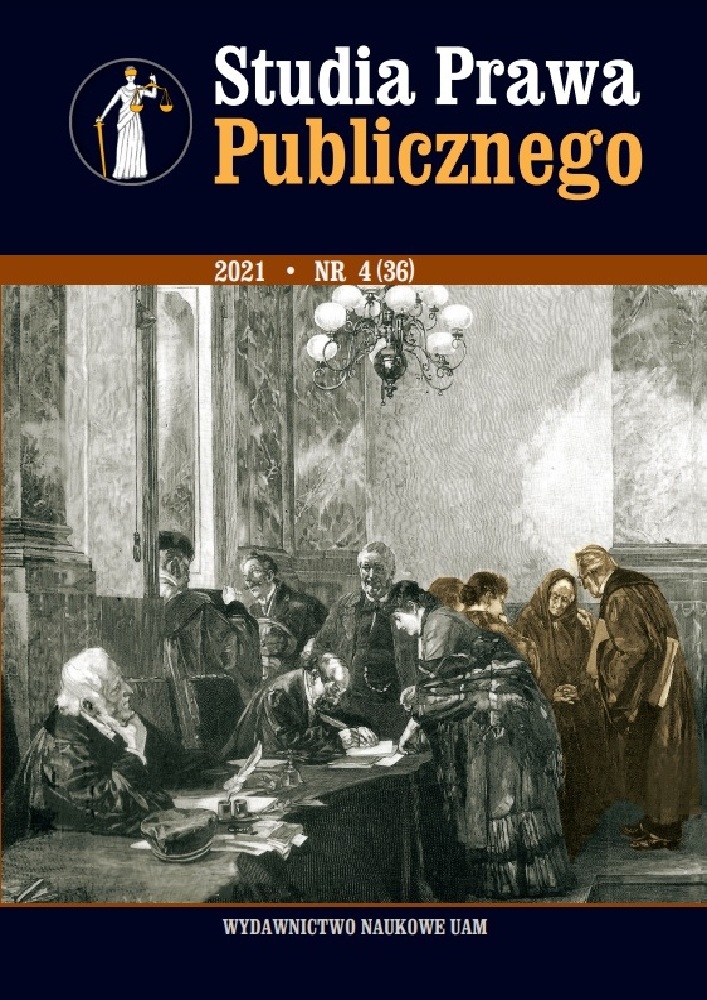Abstrakt
The article deals with the spatial validity of acts of local law. Before the amendments introduced by the Acts of 25 June 2015 and 27 October 2017, the basic concept proposed by the representatives of doctrine with regard to the changes in the spatial validity of acts of local law was the concept of preserving the binding force of the acts of local law in force in a strictly defined area, i.e. local development plans. Other acts of local law were to expire. As a result of the analysis, it was confirmed that the amendments to both the Act of 8 March 1990 on Municipal Self-Government and the Act of 5 June 1998 on District Self-Government brought about the introduction of necessary regulations that had been awaited for many years – the legal gap in this area was filled with appropriate legal provisions. The article states that the legislator decided to adopt the model, according to which, in the case of mergers or changes in the borders of municipalities, acts of local law, as a rule, do not expire. The legislator took the position that such a solution does not conflict with the wording of Article 87 Paragraph 2 of the Constitution of the Republic of Poland, according to which the sources of generally binding law of the Republic of Poland are, in the area of activity of the authorities that established them, the acts of local law. The analysis of the amended regulations has proved that these new regulations have led to a solution to problems related to the validity of local acts of law in connection with the change of the area’s affiliation to a specific local government unit. Thus, it can be assumed that the amendments discussed here may lead to an acceleration and facilitation of processes related to mergers or changes in the borders of municipalities or districts.
Bibliografia
Dąbek D., Prawo miejscowe, Kraków 2007.
Frankiewicz E., Szewczyk M., Generalny akt administracyjny, „Państwo i Prawo” 2003, nr 12.
Garlicki L., Konstytucja a ustawy przedkonstytucyjne, Materiały z XXXIX Ogólnopolskiej Konferencji Katedr Prawa Konstytucyjnego, Ciechocinek 1997.
Jellinek W., Allgemeines Verwaltungsrecht, Berlin 1928.
Jyż G., Pławecki Z., Szewc A., Komentarz do ustawy o samorządzie gminnym, Kraków 2005.
Kelsen H., Allgemeine Staatslehre, Berlin 1925.
Kelsen H., General Theory of Norms, Oxford 1991.
Kelsen H., Pure Theory of Law, Gloucester 1989.
Kotulski M., Akty prawa miejscowego stanowione przez samorząd terytorialny, „Samorząd Terytorialny” 2001, nr 11.
Marchaj R., Art.4(eb), w: Ustawa o samorządzie gminnym. Komentarz, pod red. B. Dolnickiego, Warszawa 2021, https://sip.lex.pl/#/commentary/587759655/645527/dolnicki-bogdan-red-ustawa-o-samorzadzie-gminnym-komentarz-wyd-iii?cm=URELATIONS (dostęp: 29 XII 2021).
Mijal P., Cechy charakterystyczne aktów prawa miejscowego na tle orzecznictwa sądów administracyjnych, „Zeszyty Naukowe Sądownictwa Administracyjnego” 2007, nr 5–6.
Mikołajewicz J., Prawo intertemporalne, Poznań 2000.
Skrzydło W., Komentarz do Konstytucji RP, Kraków 2002.
Szewczyk M., Obszar obowiązywania aktów prawa miejscowego, „Studia Lubuskie” 2006, nr 2.
Szewczyk M., Przestrzeń obowiązywania aktów prawa miejscowego, w: Koncepcja systemu prawa administracyjnego. Zjazd Katedr Prawa Administracyjnego i Postępowania Administracyjnego Zakopane 24–27 września 2006 r., pod red. J. Zimmermanna, Warszawa 2007.
Szewczyk M., Stanowienie przepisów gminnych, Warszawa 1991.
Winkler G., Raum und Recht, Berlin 1999.
Wronkowska S., Podstawowe pojęcia i metody prawa i prawoznawstwa, Poznań 2005.
Zaręba P., Utrata mocy obowiązującej przepisów prawnych, Warszawa 1987.
Ziemski K., Indywidualny akt administracyjny jako prawna forma działania administracji, Poznań 2005.
Licencja
Prawa autorskie (c) 2021 Paweł Sancewicz

Utwór dostępny jest na licencji Creative Commons Uznanie autorstwa – Użycie niekomercyjne – Bez utworów zależnych 4.0 Międzynarodowe.

